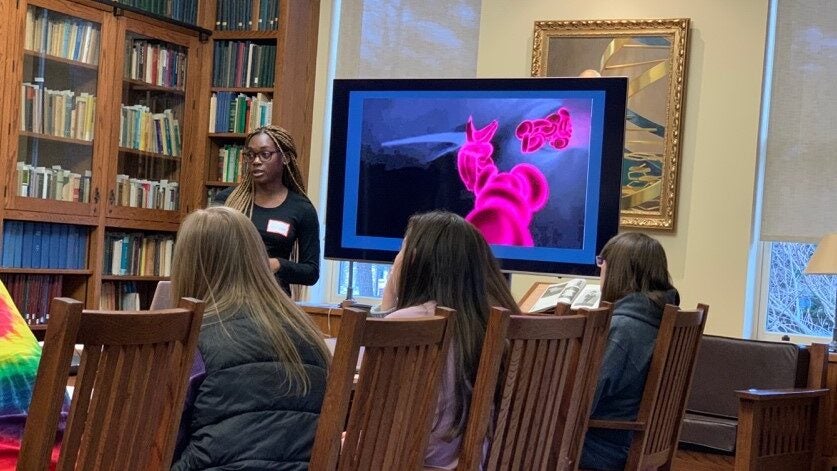The Science Journal Club
The CSHL Science Journal Club course offers a unique opportunity to 9th and 10th grade students in science research programs: students participating in the course will gain invaluable research skills for identifying academic publications on specific topics, comprehending the science within them, communicating those results to their peers, and discussing publications with scientists.
Students will learn how to create effective search strategies using advanced database search and retrieval techniques and how to navigate both public and proprietary databases. They will improve their presentation skills and learn how life sciences research is conducted and disseminated.
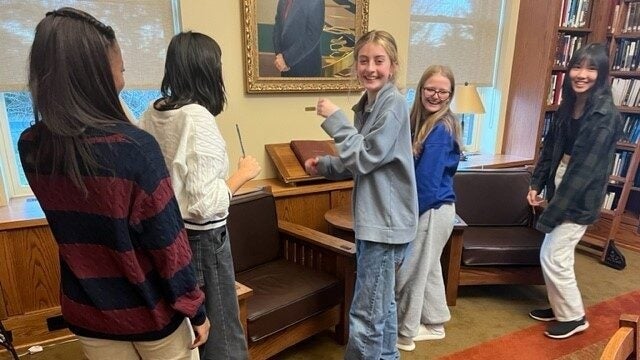
Course Components
- Instruction in the format of scientific papers and how they are written
- Example presentations of scientific research papers by CSHL scientists
- Instruction in how to find scientific papers of interest: database search strategies, different databases to use, citation navigation
- Instructor-led student exploration of scientific literature to select papers on topics of interest to the student
- Students each participate in 1 group presentation to the other students and attending scientists on an assigned paper
- Students each present a paper of their choosing to the other students and attending scientists in an individual journal club presentation
- Tour of laboratories at CSHL
- Interaction and discussion with scientists of several career tiers throughout the course
Interacting with Scientists
The Journal Club is led by Dr. Jacqueline Gunther, the Research Engagement & Data Curator at the Library and Archives. Dr. Gunther spent over 10 years performing research, presented her work at international conferences, and mentored students in graduate schools.
Course instructors include the Director of the Library, Science Informationists, and CSHL Research Faculty who actively participate in the course, leading discussions, providing guidance, and giving critical assessments of presentations.
If students choose to present papers written by CSHL scientists, the author will be invited to discuss the work, or the group will visit their lab to see their research.
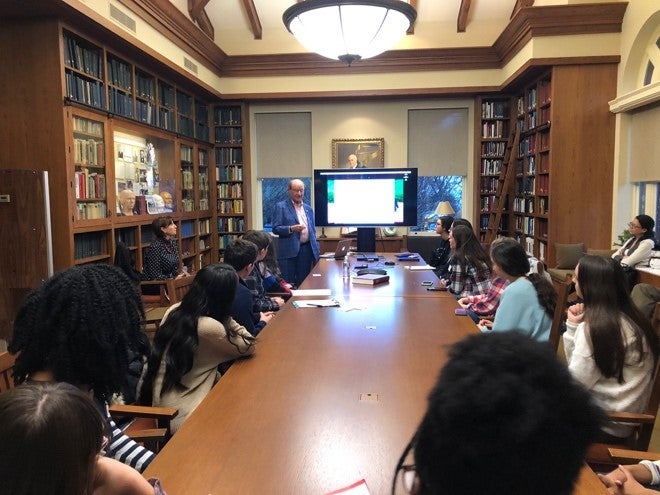
Student Comments
“I’ve begun to understand what it means to be a scientist.”
“I learned how to effectively analyze a scientific journal article through questioning authority.”
“[The Science Journal Club] helped me get a better grasp on how to interpret scientific articles.”
“This course has greatly improved my presentation skills.”
“I was able to be exposed to new subjects and learn about intriguing scientific studies and jobs.”
“The presentations and discussions were interesting, and I’ve learned more about a large scope of topics.”
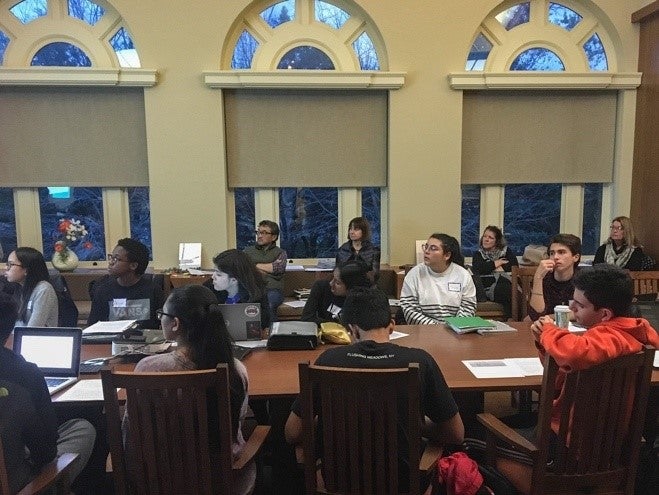
A Tale of mRNA Splicing
CSHL faculty member Adrian Krainer (pictured below) has been studying how messenger RNA is spliced (cut and reassembled, sometimes in several different patterns) for decades. In some cases, incorrect splicing can lead to human diseases, like Spinal Muscular Atrophy (SMA), a nerve and muscle wasting disease that is the leading genetic cause of infant mortality.
In 2010, Dr. Krainer published findings in a scientific paper that a treatment which reduced incorrect splicing in mice with SMA improve the condition and symptoms of the mice. Today, that research has led to the life-saving drug Spinraza®. In the photo above, Dr. Krainer is holding 3-year-old Emma, a Spinraza® recipient, who is alive today solely due to his groundbreaking research.
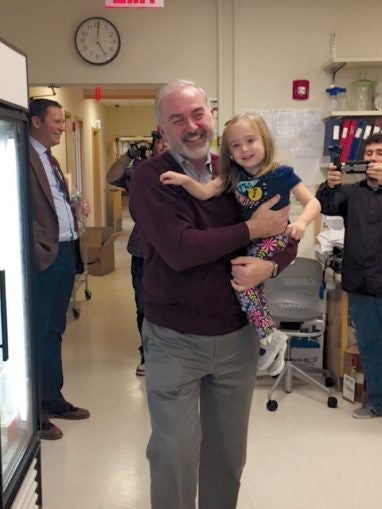
Dr. Krainer is just one of the many CSHL scientists participating in the Science Journal Club for High Schools at the Cold Spring Harbor Laboratory Library and Archives.
Cold Spring Harbor Laboratory
Founded in 1890, CSHL is one of the world’s top institutions for cutting-edge molecular biology and genetics research. Home to eight Nobel Prize recipients and a vibrant active research community, CSHL has 68 research laboratories and ~600 scientists on staff working in cancer biology, genomics, neuroscience, quantitative biology, and plant genetics. Over twelve thousand scientists from around the globe come to Cold Spring Harbor Laboratory every year to present the latest in groundbreaking life sciences research at our international meetings.
For more information and how to offer this program to your high school students, contact:
Dr.Jacqueline Gunther at
gunther@cshl.edu
